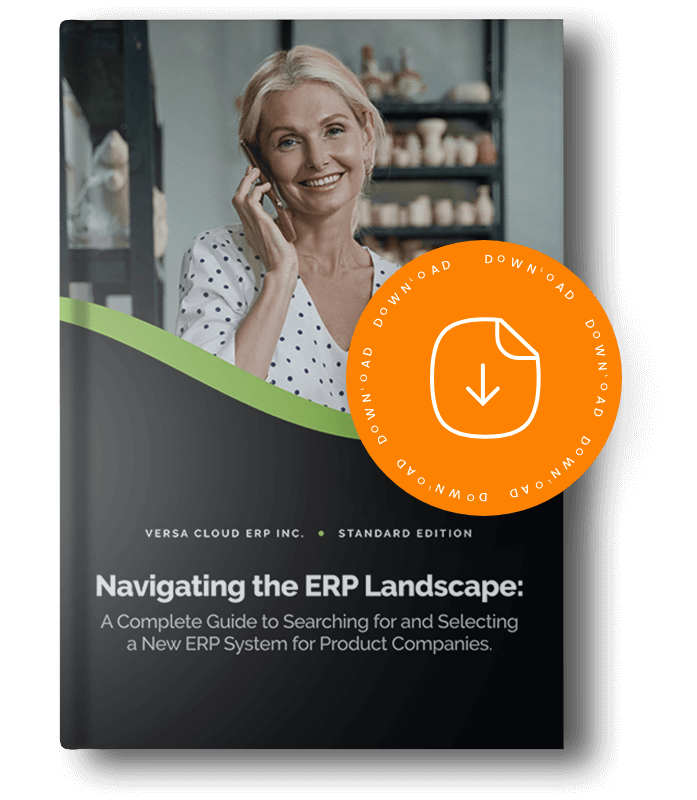Introduction: QuickBooks Was Just the Beginning
QuickBooks is a widely accepted basic accounting system that powers the accounting functions for millions of businesses. For startups and early-stage companies, QuickBooks is often the first system put in place to manage key financial functions—tracking income, expenses, payroll, and reports. It’s easy to use, user friendly and affordable. However, as businesses grow, their needs grow too.
As your business begins to grow, the issues you face change. What was a simple issue related to cash flow now requires you to manage accounts receivable and accounts payable, while also managing inventory, supply chains, customer relationships, and operational improvement. With all these issues, you begin to find out that QuickBooks isn’t going to provide the necessary solutions for your needs.
This is okay. In fact, it’s common. Growth creates complexity, and complexity requires smarter tools. This blog explores why enhancing QuickBooks with scalable operational systems is the smartest next step for businesses looking to scale without starting from scratch. You don’t need to rip and replace—you need to integrate and elevate.
Why Businesses Outgrow QuickBooks Alone
QuickBooks is designed to do one thing really well: manage your accounting. And for a while, that’s all you may need. But as operations grow, a more holistic system becomes essential. Here’s why:
- Manual Workarounds are Plentiful: Teams often find themselves exporting data from QuickBooks, using Excel to manipulate it, just to answer simple questions “How much inventory do we have?” or “What is our current margin per product line?” That’s not scalable.
- Siloed teams lead to confusion: QuickBooks can’t natively connect to your e-commerce platform, warehouse software or procurement systems. This means teams are operating in silos –sales teams don’t talk to fulfillment departments and finance can’t see delays in real-time.
- Limited Inventory Visibility: If you are managing SKU’s in multiple locations or multiple channels, you will soon find, you can only get so far with QuickBooks inventory tools. You may know what you sold, but not what is coming in, what’s being returned or what needs to be reordered.
- No Workflow Automation: As a business scales, applying logic to automate repeatable tasks becomes a competitive advantage within your organization. QuickBooks does not offer the type of logic-based automation that can route orders, generate alerts or track approval processes.
At some point, the accounting foundation QuickBooks provides needs operational scaffolding to support the rest of the business. That’s where enhancement becomes not just beneficial—but essential.
The Solution Isn’t Replacement—It’s Enhancement
There is a popular notion that failure of QuickBooks requires replacement. This is often true, but in many instances, it is a mistake.
Switching accounting/finance systems is time-consuming, expensive, and disruptive at every level of your organization. More importantly, switching accounting systems is generally not necessary because QuickBooks is fully capable of being your primary accounting product. The key is finding appropriate tools to complement it.
By integrating QuickBooks to a scalable ERP (Enterprise Resource Planning)-level, you can extend your QuickBooks value to the entire organization. The ERP is responsible for all of the operational complexity; inventory, warehousing, manufacturing, multi-channel sales, while QuickBooks maintains responsibility for the books. Result: your ERP and QuickBooks become a synchronized intelligent ecosystem that is extensible to your demand.
Enhancement, not replacement, keeps your accounting and financial foundation intact while providing every user in the organization, from procurement to fulfillment, with whatever data and automation they need to succeed.
What an Enhanced QuickBooks Ecosystem Looks Like
Imagine this: QuickBooks is still your core accounting system. But now, everyone has the capabilities they need—and they’re all on the same page.
- Single Source Data Repository: Your ERP is that connecting tissue between finance, operations, and customer service. No more copying and pasting from one system to another.
- Real-Time Inventory Monitoring: Inventory is current as it monitors from raw materials to finished goods. Whenever you receive, ship, or transfer items between different locations, inventory is updated automatically.
- Automated Fulfillment Workflows: Orders from your e-commerce site are routed automatically to the proper warehouse. Picking, packing, and shipping occurs without touching the keyboard.
- Purchasing Control and Smart Reorders: The system recognizes your buying behaviors and triggers purchase orders based on minimum-on-hand, lead times, and sales forecasting.
- Smart Dashboards and Forecasting: Rather than spending time twirling spreadsheets, executives simply click on their smart dashboards showing live data on their financial position, inventory performance, order status, and so much more.
The nature of this improved state not only saves time but allows for smarter decisions, better collaboration, and sustainable growth.
Business Scenarios Where This Makes All the Difference
Let’s break down how different types of businesses can benefit from enhancing QuickBooks:
1. High-Growth E-Commerce Retailer
Imagine a company that just hit a massive growth spurt. Orders are pouring in—but fulfillment can’t keep up. The sales team is flying blind, and customer service is swamped with inquiries. QuickBooks knows the revenue numbers, but not where an order is or when it’ll ship.
Enter scalable ERP. With real-time inventory sync, order routing, and automated invoicing, the retailer can process orders faster, ship more accurately, and provide real-time updates to customers. QuickBooks tracks the money. The ERP ensures the operation runs smoothly.
2. Manufacturing Company Expanding SKUs
As a growing manufacturer, QuickBooks by itself is not going to track raw materials, build processes, or bills of materials. You need to know what is in production, what is in stock, and what is behind.
An integrated ERP does everything – connect the dots with supply chain management, production planning and fulfillment. Meanwhile, QuickBooks still manages accounting entries automatically so your financial records will always match operational activity.
3. Wholesale Distributor Going Global
A distributor enters the international market. Now it’s dealing with multi-currency transactions, cross-border shipping and compliance–and QuickBooks can’t handle all of that on its own.
A cloud-based ERP solution integrated with QuickBooks allows a single cloud-based solution to manage global logistics, apply the appropriate tax codes, and manage international inventory, but it still gives their finance team comfortable accounting tools in their accounting package.
Why Integration Beats Fragmentation
Let’s be honest—many businesses try to “patch” their problems with a mix of standalone tools. A shipping plugin here. A CRM app there. A warehouse tool connected with a workaround. Sound familiar?
This kind of fragmentation may seem efficient at first, but it quickly becomes a tangled mess. Systems don’t talk. Data is duplicated. Errors creep in. Your team wastes time reconciling reports instead of serving customers.
Integration flips that script:
- Everyone Works From One Source of Truth: Whether it’s sales forecasts or inventory levels, all departments are looking at the same data.
- Tasks Are Automated, Not Repeated: No more entering the same invoice into three different systems.
- Customer Experiences Improve: Orders are fulfilled faster, returns are processed efficiently, and updates are timely.
- Decisions Get Smarter: You’re no longer guessing. You have real-time insights to guide strategy.
Integration doesn’t just solve problems—it sets the stage for better business.
How Scalable Tools Future-Proof Growth
Enhancing QuickBooks should never be about a temporary fix. The goal is to build a foundation that supports your future. Here’s what that requires:
- Role-Based Access: Keep financial data secure while giving team members the right tools.
- Multi-Warehouse and Multi-Entity Support: Expand geographically without doubling the work.
- Smart Forecasting: Anticipate demand for products, seasonal surges, and bottlenecks in your supply chain – before they happen.
- Cloud-Based Access: Work remote, approve on the go and have real-time visibility from anywhere in the world.
- Modular Add-Ons: You can add the functionality you need – CRM, manufacturing, analytics – as your business grows without switching platforms.
Scalable tools do not just fit your current criteria. They evolve with you to keep your business nimble, regardless of market conditions.
How Versa Cloud ERP Enhances QuickBooks Without Disrupting It
Versa Cloud ERP is designed specifically for companies that have outgrown simple systems—but don’t need a complete software overhaul. It brings complexity into the operational world while reducing the complexity of accounting with seamless integration to QuickBooks.
Here’s how Versa allows you to grow and makes sure that what works doesn’t break:
- Bi-Directional Integration: Versa pushes transaction data, purchases orders, and invoices to QuickBooks automatically. If an item is changed in either system, it will be changed in both.
- Have What You Need: Need more control over your inventories? Add it! Expanding into manufacturing? There is a module for that tool set. Versa is flexible to your business.
- Easy-to-use, guided implementation: Let’s keep the wheels turning. Onboarding and implementing Versa is smooth and minimally disruptive to your operations.
- Visibility and perspective across the business: At any stage in the order fulfillment process, all stakeholders can see everything that’s happening — without needing an accounting degree!
Versa builds upon QuickBooks, providing your organization with operational competence, strategic direction, and scalable support — all while letting you keep the system you know and trust.
Conclusion: Scale Smarter, Not Harder
Growth should be exciting—not chaotic. If your team is spending more time managing spreadsheets than growing the business, something’s off.
QuickBooks is still a great tool. But no single system can do it all. The smartest companies aren’t replacing QuickBooks—they’re enhancing it with solutions designed for scale.
With Versa Cloud ERP, you can build a business that’s smarter, faster, and more resilient. Empower every department. Streamline every workflow. And keep your accounting right where it belongs—intact.
You don’t need a revolution to scale. Just the right tools to evolve. And that starts with enhancing what already works.
Ready to Enhance QuickBooks—Not Replace It?
Let Your Growth Do the Talking—We’ll Handle the Backend
Growing pains aren’t a badge of honor—they’re a sign you’re ready to evolve. Versa Cloud ERP was built to enhance your existing tools, not replace them. From inventory and operations to fulfillment and analytics, we help you scale—without skipping a beat on QuickBooks.
Join the future-ready businesses already running smarter.
Take the First Step Towards Transformation
Effectively manage your financials, multiple channel inventory, and production workflows with our award-winning ERP.
Let Versa Cloud ERP do the heavy lifting for you.
Do Business on the Move!
Make your businesses hassle-free and cut the heavyweights sign up for the Versa Cloud ERP today!!
Join our Versa Community and be Future-ready with us.










